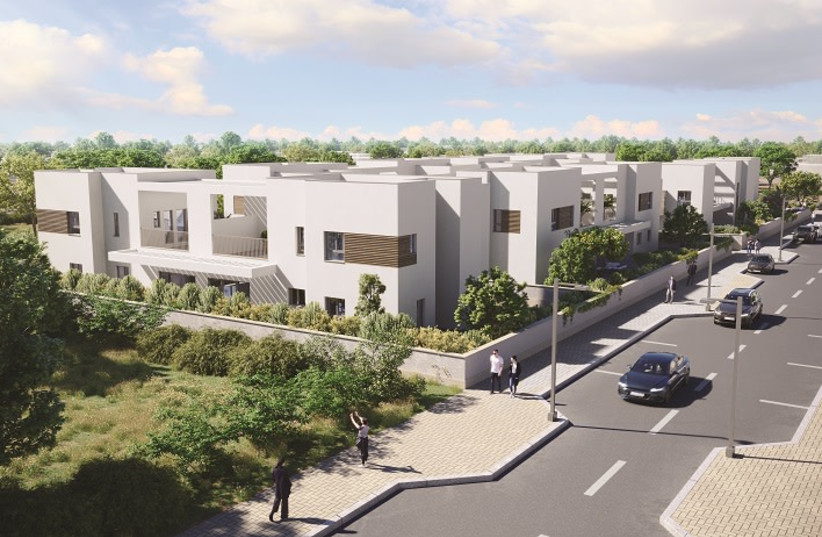In the wake of Israel’s ongoing war against Hamas, the Aliyah and Integration Ministry launched a new plan on Wednesday morning to encourage aliyah (immigration to Israel) by upgrading the available “infrastructure” for new olim both before and after their arrival in Israel.
Aliyah and Integration Minister Ofir Sofer, Finance Minister Bezalel Smotrich, and Jewish Agency chairman Doron Almog announced the plan in a joint press conference. The plan includes three central tenets: Aliyah as an economic growth engine; Aliyah as part of a community; and the solidification and strengthening of the integration infrastructure in Israel.
According to the plan, new olim who choose to live in the Negev, Galilee, or Judea and Samaria will receive NIS 2,000 a month for rent during their first two years in the country; young families will receive full funding for rent in “community integration centers”; a plan for university students includes full tuition, a year of study in their native tongue, rent assistance, and community accompaniment; a new program will accompany people who decide to make Aliyah already in their native countries; an upgrade to digital and community Hebrew studies will supplement last year’s reform in Hebrew study (“ulpan”); and more.
The plan’s approximate cost is NIS 170 million, spread over two years, and the Aliyah and Integration Ministry is set to receive an increase of NIS 55 million in the renewed 2024 budget, which is expected to pass into law in the coming month. According to a statement to the press, the plan came as a result of the sharp increase in antisemitism in the US and Europe since the war broke out on Oct. 7, which has led to a dramatic rise in people registering for Aliyah – a 300% rise in France compared to the parallel period a year before; a 100% rise in the US; 150% in Canada; and 40% in the UK.

The Aliyah and Integration Ministry decided to call the plan “Af al pi chen” (literally “nonetheless”) after a boat of pre-Israeli independence immigrants who arrived in the Land of Israel as part of the “Aliyah Bet,” sending the message that despite the war, Jews will continue to make aliyah.
“There were those who tried to drive us apart, but they glued us tightly together or perhaps only reminded us that we are one... There are those who tried to uproot us from our land, and they will [now] see aliyah,” Sofer said. He also stressed that the reason for an increase in aliyah was not just antisemitism but also the “deep solidarity” that the Jewish Diaspora has shown towards Israel since the war’s outbreak.
The three pillars of Zionism – security, settlement, and Aliyah
Smotrich said that out of the three pillars of Zionism – security, settlement, and aliyah – the third had been neglected in recent years, and the new plan was a symbol of its renewed importance. He stressed that, while he has been serving as finance minister, there were four areas where the government decided to invest additional funds rather than cut funds in the new budget, and aliyah was one of them, alongside hi-tech, housing, and haredi employment. Aliyah is not just important for the sake of the olim themselves; it also provides a boost to Israel’s economy, he said.
“Encouraging and integrating aliyah is a strategic event for the State of Israel,” Smotrich said. “Aliyah in the coming years will serve as an enormous growth engine for the Israeli economy and an engine of values – a renewal and refreshment of Zionism,” he added.
Jewish Agency head Doron Almog said, “Aliyah is the most direct expression of the Jewish Diaspora’s unconditional love for the State of Israel, the only Jewish state in the world... Aliyah is also a cornerstone in the rehabilitation of the State of Israel, which is in the midst of the worst crisis since its founding.”
“The State of Israel needs new olim. That is how it was, and that is how it will continue to be. They are a source of power and strength,” Almog added.
